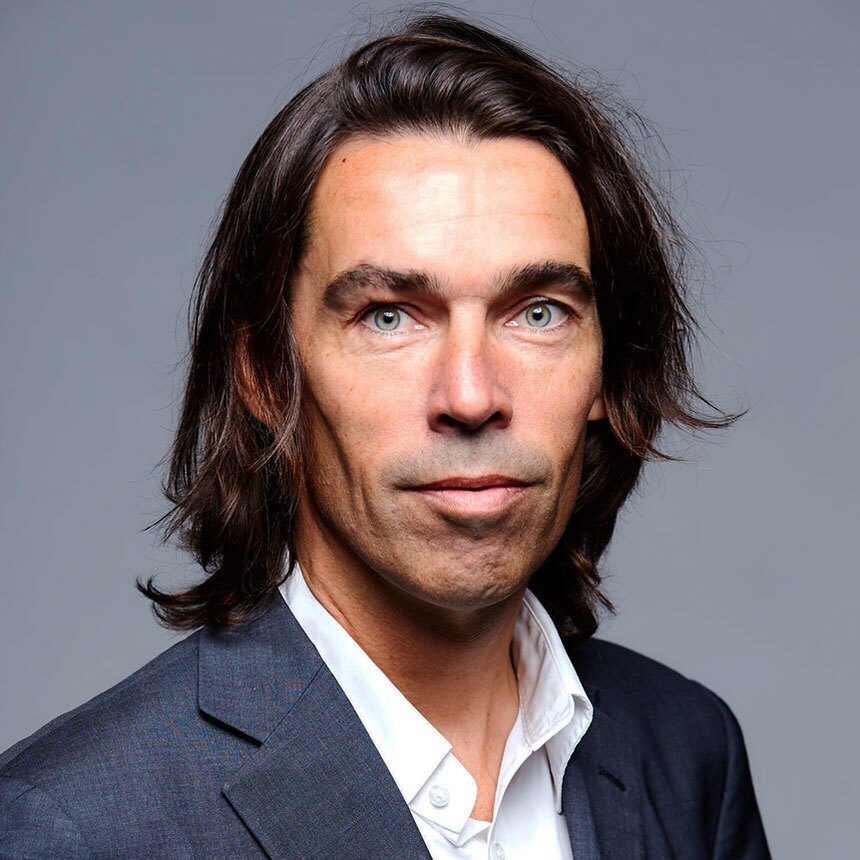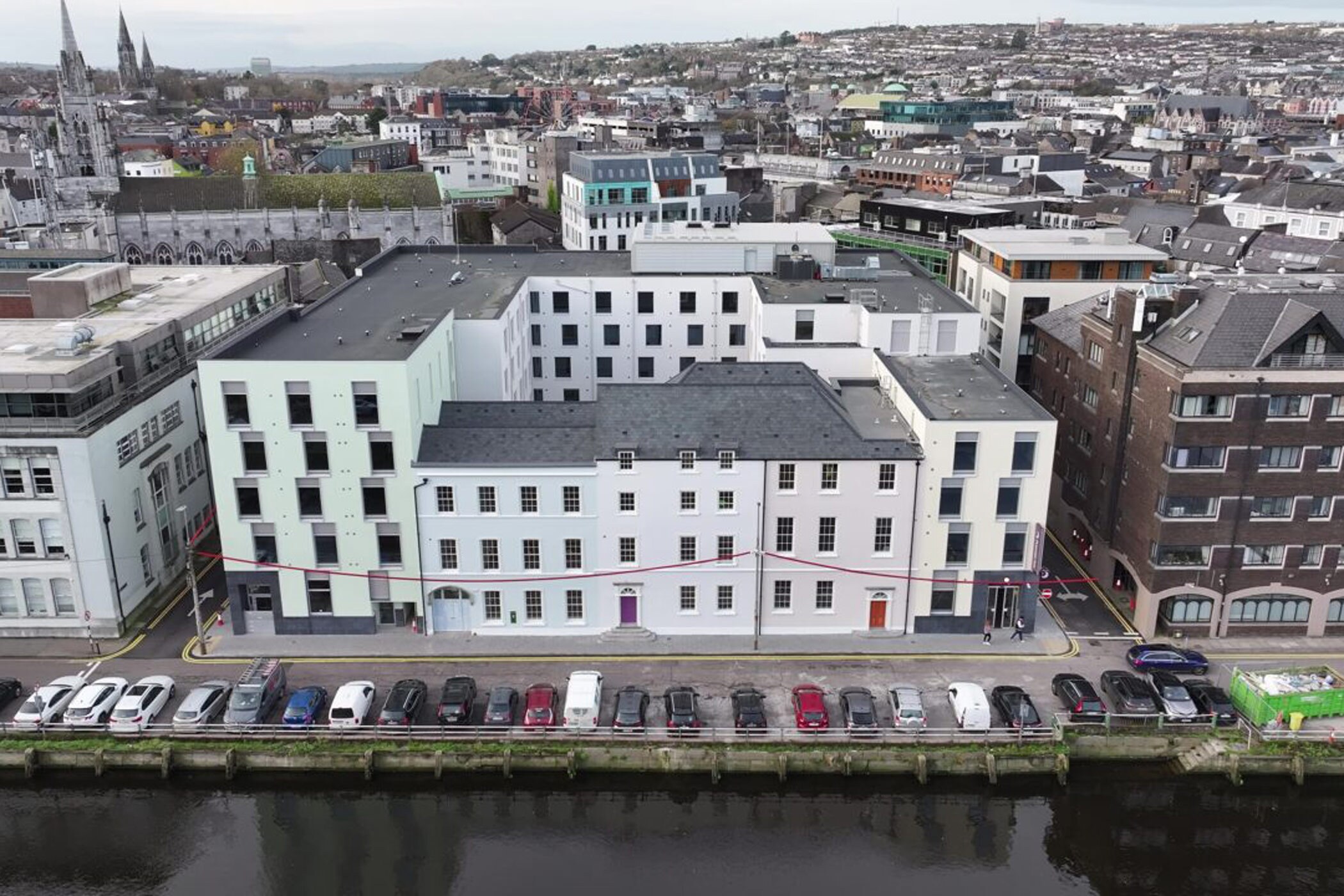Generator Hostels and its sibling hotel firm, Freehand, are about to begin a growth spurt, CEO Alastair Thomann said.
The firm has 21 hotels and is owned by London-based Queensgate Investment. In Europe, Generator’s portfolio covers 12 European cities, including multiple properties in Berlin. It also has two hotels in the U.S., in Miami and Washington, D.C. Freehand has hotels in Chicago, Los Angeles, Miami and New York City.
The company also manages one hotel without either of its brand names over the door: New York City’s famed, 605-room Paramount Times Square. The hotel's claim to fame is it kicked off the boutique hotel segment when hotel mogul and Studio 54 founder Ian Schrager bought its building and changed the name to what it is today.
Operating third-party hotels remains very much core to the future of Generator and Freehand Hotels, Thomann said.
Queensgate bought Freehand in October 2019 for approximately $400 million from a seller consortium including The Yucaipa Companies and Sydell Group. In 2022, it completed a €750 million ($802 million) refinancing of Generator and Freehand that Thomann said is where the brands’ current point of strength originates.
Queensgate's partners on the refinancing include Ares Management in Europe and Generator’s existing U.S. lenders: Waterfall Asset Management and Värde Partners.
“It’s not easy to do refinancing at this level, with all the current macro-economic challenges, but it will allow us to grow further. It is all about expansion,” Thomann said. “We will enter the Asia-Pacific market soon, not only via the acquisition of single assets but perhaps with smaller brands in our space. We are also starting to win hotel management agreements.”
In January 2023, the company struck its first deal in Europe, reaching terms with Schroders Capital to manage the former ONE80° Hostel. The property is now known as the Generator Berlin Alexanderplatz.
“That for us and the hybrid sector is a massive change. Why should we have won it? It is perhaps not natural, but we did it on the back of our financial performance,” he said.
Thomann said he is looking at destinations in Asia, Australia and the Middle East.
“Being a global operator is the next step. We have solutions and interested owners,” he said.
Thomann said the firm is able to drive revenue per available room in its sweet spot of between 300 and 400 beds, its revenue fueled by food and beverage.
“Ninety percent of revenue comes from guests who are not staying with us. When you go into lobbies of most hotels, this is not the case,” he said. “We have an interesting business model. To owners, we say, here are our numbers, our profit margins and our investor returns.”
At the Paramount, and then elsewhere, Thomann intends to add DJs and table service to the successful mix.
He said experts predicted the end of hostels with the onset of the pandemic.
“That is not the case. Not everyone cared about the pandemic, and when they could travel, they did so. In 2021, at the height of the pandemic, we turned a profit. I do not think anyone else managed to do that,” Thomann said.
He added its latest earnings numbers have countered inflationary pressures.
“Our fourth-quarter earnings saw a 15% increase in revenue and a 28% increase in profits. With an emphasis on beverage sales, we can keep our margins, and utility cost increases have not been a big hit,” he said. “In our established portfolio, we have added triple bunk, and we went down into our cellars and added more pods, a couple hundred more beds, and that more than offset cost increases.”
Wide Open Spaces
The hybrid-hostel sector has huge room to grow, Thomann said.
“Ninety-five percent of this sector is unbranded, and there is high demand for it in high-rate markets that will bring high returns,” he said.
Some of the established international hotel brands are researching the market but not daring to advertise the fact.
In a few U.S. states, notably New York, a hostel model is not allowed.
“There is an old law that says strangers cannot share rooms, but since the end of the pandemic, we’ve seen the desire for even more socializing, and there is more competition, more cool brands and a lot of potential space in this segment,” he said. “In the case of established markets such as in Berlin and London, the sector is a much-upgraded experience, with rooms competing with all the lifestyle brands.”
Expansion in the hostel segment is largely via property conversions, Thomann said. Of late, that has been an extremely competitive field given the costs of financing new builds and the difficulty of finding sites in the right locations.
“We’re not looking for trophy assets. We’re looking for traditional conversion sites that are well priced and Instagrammable. We’re off to the races. Conversions are not expensive,” he said.
For example, some of the conversion projects Generator has done include a parking garage in Madrid, a prison in London and a university lecture hall in Amsterdam.
“We do not care what the shape of the building is, as we can add more beds. That’s a massive upside for us,” he said. “It's important to stay relevant. Design must be fresh. Yes, guests will still want to see the city, but our capture rate is up by adding a lot of shuffleboards, more karaoke nights, a lot of parties and more DJs. 9 p.m. to 2 a.m. is peak time for us.”
Management Mania
Thomann said Generator and Freehand Hotels is more selective concerning hotel or hostel management agreements.
“With select partners it makes sense, although we’d not get the double upside of operations and real estate. It will take a certain philosophy. We haven’t quite got our heads around it yet, but investors are looking for management teams with the right mindset. We are able and ready,” he said.
For upcoming management agreements, it will not always be the Generator name above the door, he said.
“Perhaps, the Paramount is to be rebranded, likely ‘Paramount by Generator.’ On other hotels, a new logo. Who knows, but it is quite a shift,” he said.
Another shift is the continuation of change in guest makeup.
“Where pricing is going, there has been a massive shift of families staying with us. With us, they can book one room just for them, whereas at most hotels they’d have to book two. In our last year, we’ve seen a 44% increase in family bookings,” he said.
Another thing that's changed is length of stay, which does not necessarily mean spend-per-guest is down, Thomann said.
“The classic 48-hour trip is back. It had changed to include an extra day or two, but we’ve seen this decline lately,” he said. “It is now back-to-office again, and more companies are paying a little more attention to where employees are.”
He added there's been a rise in “gig-tripping,” which is when groups of friends book hotels all at the same time to attend concerts by star performers.
In January, Whitbread CEO Dominic Paul also referred to this phenomenon, stating that business on the books had surged around Taylor Swift’s United Kingdom concerts in June and August 2024.
“Events such as the Six Nations rugby championship are proving very busy,” Thomann said.
Personnel Pointers
Generator and Freehand Hotels' new chief operating officer is Ayo Akinsete, who began in December and will oversee projects under the Freehand brand.
“He came from Treehouse Hotels, a trailblazing luxury brand. When I started, it was not easy to recruit people of this caliber. It is another sign of us growing up,” Thomann said.
While Generator has a guest mix of 70% to 30% independent travelers to families, Freehold’s mix is the reverse.
“The [food and beverage] becomes more sophisticated. There will not be as many Freehand hotels as there will be Generator hotels,” Thomann said, adding that dual-branded hotels are also under consideration.
He said more collaborations with the Broken Shaker bar brand, owned by Bar Lab and Sydell Group, will be included to add to its existing bars in Generator and Freehand hotels in Los Angeles, Madrid, Miami and New York City.



